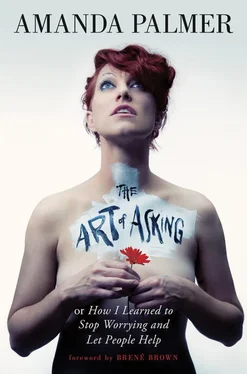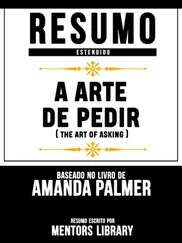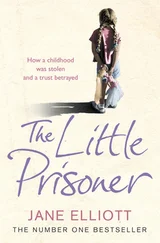Neil looked at sleeping, snoring Anthony. Then he looked back at me.
And then he smiled. He taught you how to love. You taught me how to love, and how to be loved. I suppose it’s all a bit of a circle, isn’t it?
I reached over and squeezed Neil’s hand.
We’re turning out good, darling , I told him. We’re getting it .
• • •
“I suppose you are real?” said the Rabbit. And then he wished he had not said it, for he thought the Skin Horse might be sensitive. But the Skin Horse only smiled.
“The Boy’s Uncle made me Real,” he said. “That was a great many years ago; but once you are Real you can’t become unreal again. It lasts for always.”
The Rabbit sighed. He thought it would be a long time before this magic called Real happened to him. He longed to become Real, to know what it felt like; and yet the idea of growing shabby and losing his eyes and whiskers was rather sad. He wished that he could become it without these uncomfortable things happening to him.
—
The Velveteen Rabbit by Margery Williams, again
• • •
I called Anthony from the road. I was in someone’s backyard, in Canada, away from home for a few days to deliver a few house parties. He was getting more and more tired. The chemo was wearing him down. And he wasn’t always answering my texts. Sometimes it took a few days to get him on the phone. I worried.
Remember the sin-eater? he asked.
Yeah .
Cancer, same thing. I’m growing on the inside. There’s more room. It’s all coming at me. The only way it works is if you act like a sieve , he said.
A sieve? A kitchen sieve? Like a spaghetti colander?
Yes, clown. And I’m having to do the same thing with the cancer. More room, bigger space. It’s all the same .
I’m not following you .
Everybody keeps talking about “fighting” the cancer , he said, everybody keeps telling me to fight for my life, to fight the disease, and how their uncle won the battle against cancer and their cousin won the fight against cancer and blah blah blah blah .
Okay… and?
I’m not fighting , he said. It’s already inside me… and I’m not going to fight. I’m going to be a good host, let it pass through me… resist nothing. Sieve. Let it all pass through .
I get you. But it’s all a metaphor anyway. Be careful about saying that… you might piss people off. So many people are so proud of their cancer fight. That’s just their way of thinking about it .
The fight doesn’t work, beauty , he said. It’s like the haters and the Internet shit you deal with. Let them in, love them, let them go. No fight. Like I said. Sieve. Befriend every dragon. You get it .
Yeah. I get it .
I’m gettin’ off the phone now. Can’t keep talking. Too tired. Gotta take this cancer-ridden body to slumberland. Say the magic words, my girl .
I love you .
• • •
As time wore on, the hardest thing was the relentlessness of the fifty-fifty. We hung on every word from the lips of every doctor trying to figure out if Anthony was going to escape the death sentence. I didn’t want to plan anything I couldn’t cancel, so I just stopped thinking about the future altogether. It was late winter in Boston, and the cold and the paralysis of the schedule seemed to be sucking the life force out of everything. I tried to write music, but I failed. I felt empty and lazy and uninspired.
I was invited to talk at TED, and that gave me something nice and distracting to freak out about.
There was also a tired smear of hurt left in my heart from the volunteer musician controversy. The worst of it had dialed down, but the wounds were slow to heal, and I found myself occasionally stumbling across Internet lists of how I was one of the Ten Worst People Ever. I took comfort in preparing my TED talk, sitting in Anthony’s study, reading him my talk drafts on his chemo-recovery days and pacing around the basement of our rental house, flailing my hands around to an imaginary TED audience consisting of dirty paint cans and boxes of books.
After a few months, the fog started to lift, ever so slowly.
The chemo was working, they said.
My friend wasn’t dead… yet. He might be okay.
I did the TED talk, and people liked it. My life was starting to grow back, people on the Internet seemed to be tired of hating me and had moved on to being outraged about Miley Cyrus’s decision to twerk. Spring was coming.
Neil and I flew home from our week at TED, back to Anthony’s side, and I started feeling better for the first time in months.
• • •
The feeling didn’t last long.
I was sitting in the café of Porter Square Books in Cambridge, mundanely answering some emails over a coffee and some Vietnamese soft rolls, when several people suddenly twittered at me to say that there had been unexplained explosions at the Boston Marathon, at the finish line, which was only about eight blocks from the Cloud Club.
It’s bad—it’s real—bomb went off. Here at marathon.
Within minutes, just how bad became clear. More tweets came in. People had lost limbs.
I drove home, sat down at my computer, and didn’t get out of the chair. I was glued to my Twitter feed, sharing every piece of relevant information coming from the news, every update from my virtual community on the ground, and every outpouring of concern and love from the rest of the world. People who were at the marathon site shared their shock and fear and sadness, and told us what they were seeing. Everybody wanted to help one another.
I twittered over five hundred times that day.
Neil was out of town.
I called Anthony. Laura had been near the finish line, cheering on a friend. She was safe. He was tired.
As evening closed in and I was still in the chair, a painfully graphic photo of one of the victims was uploaded, and I shared it, with a warning. There was a collective outpouring of grief and anger and confusion—people commenting in real time about how it made them feel.
At that moment, I found myself thinking that I wanted to be in a space where people were physically all together, communing, stilling themselves and feeling the massive disruption in our city and the impact of all the blood, debris, and senseless loss of life. I felt alone. Sitting at home alone on the Internet just wasn’t doing it for me. People sent tweets asking if I could get everybody together at a park, or in a square, but there was a police mandate against any public gatherings, because the bombers were at large.
I typed a message to Twitter:
We can’t gather. Illegal. But how about a few moments of silence. I need it. Does anyone want to join me?
My feed exploded with a rousing “YES, please.” It was 8:55 p.m., so I set the minute of silence for nine o’clock exactly, and asked people to find a good spot, and do whatever they needed to do to get ready. I lit a few candles, counted down with the Twitter feed, set my iPhone timer, and at nine on the dot, closed my eyes.
Seconds later, Neil’s visiting cousin Judith came through the back kitchen door, looking as emotionally exhausted as I felt. We hugged. I gestured at the laptop on the kitchen table and said:
Hey… it may sound a little weird but… I’m holding a moment of silence on the Internet .
Judith knew me. She got it. I closed my eyes again and sat in silence, with Judith—and with my online community—until the timer went off.
Everybody sent love and peace back and forth. I sent the people around me in Boston a wish for a safe, unafraid night’s sleep.
Читать дальше












